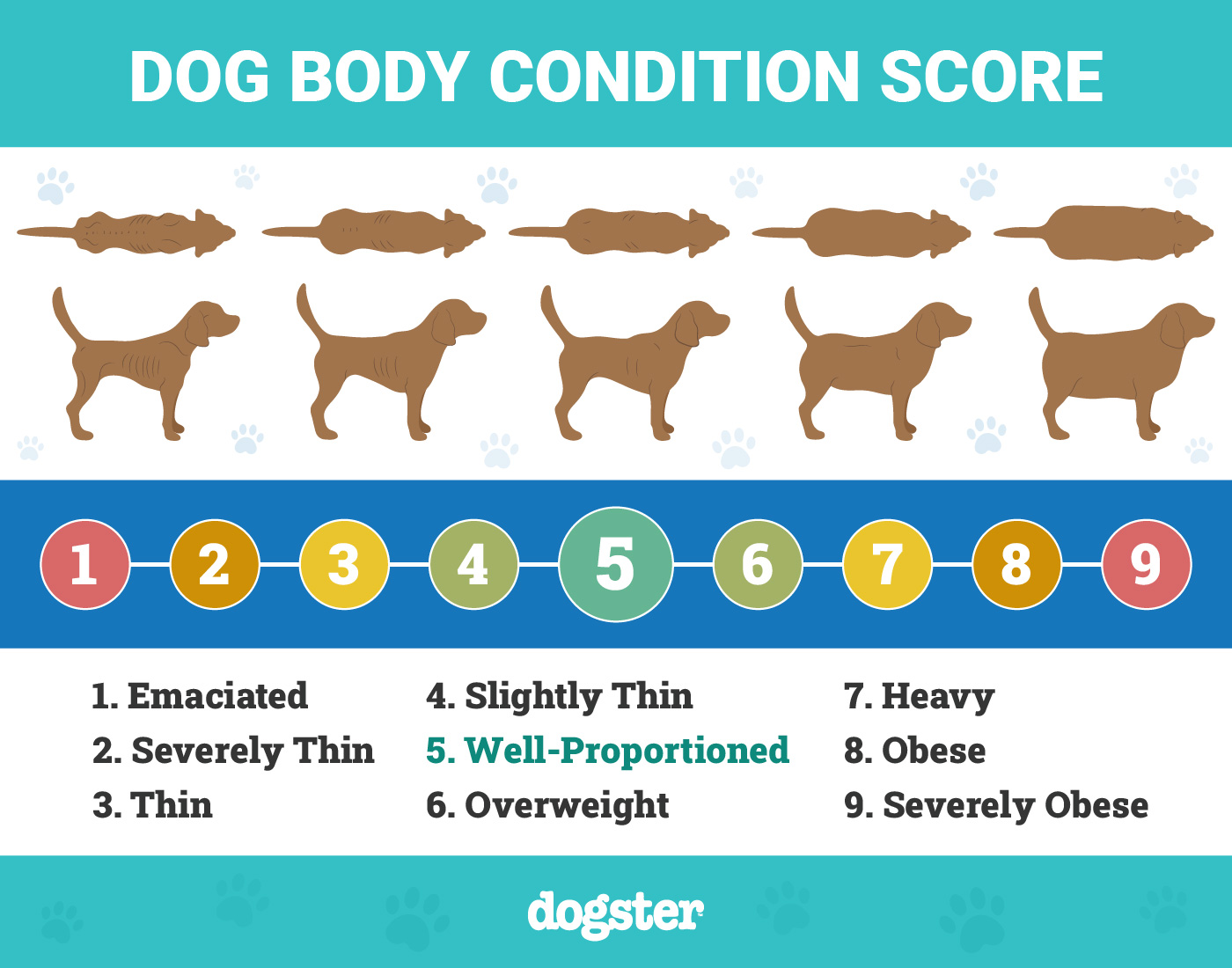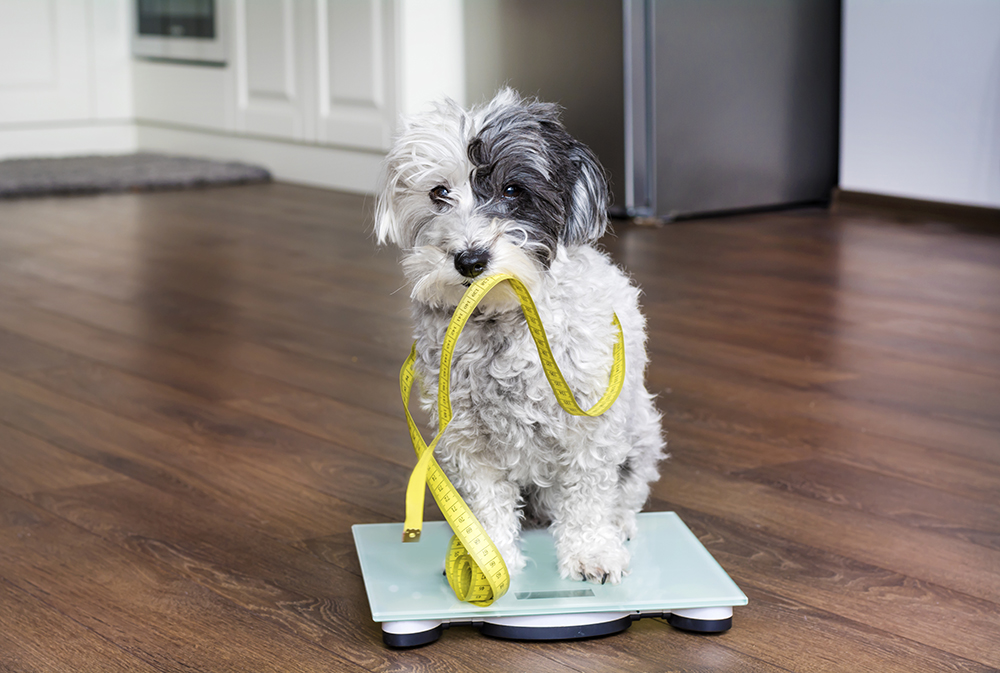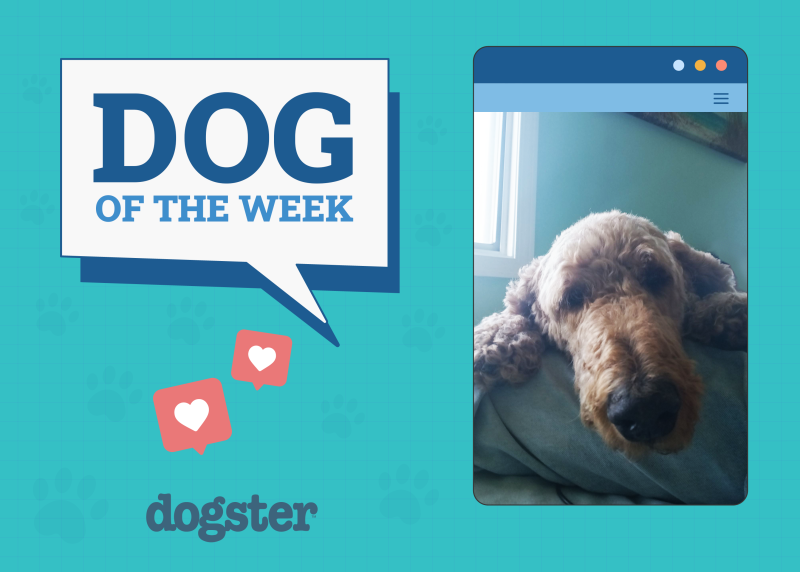Do your eyes deceive you, or has your dog gained weight over winter? Chances are, you’re not just seeing things. Like humans, it’s not uncommon for dogs to gain extra weight during the colder season. But why does it happen? In this article, we discuss why your dog is prone to weight gain around wintertime and what you can do to stop it.

Why Do Dogs Gain Weight in Winter?
Think about why you might be prone to gain weight in the winter: eating more, moving less, etc. All of those apply to your dog too.
1. They’re Less Active
Due to colder temperatures during the winter season, your dog is likely to spend less time outside. The less time they spend outside, the less active they’re likely to be. As a result, it’s much easier for them to put on an extra pound.
2. A Dog’s Metabolic Requirements Increase
At the same time, your dog’s eating habits haven’t slowed. If anything, those habits may have even increased. A dog’s energy requirements increase when the ambient temperature is cooler, which is due to the way that the muscular system works. Whenever muscles contract, they produce heat. When it’s cold, the brain may signal to the muscles to contract more, a phenomenon known as shivering. You likely have also experienced this in cold temperatures. The fundamental physiological reasoning for shivering in chilly climates is the same for you and your dog.
The skeletal muscles have a high energy demand (second only to the brain), so in cold climates and temperatures, a dog’s metabolic requirements increase. Therefore, it’s considered to normal for a dog to eat more during the winter months, particularly if they spend long periods of time outside or in poorly insulated environments. Puppies and dogs that are underweight, emaciated, unwell, or lacking sufficient fur (for example, if they have large bald patches) are more prone to cold stress and will therefore have a higher metabolic requirement for energy during cold periods.

3. Dogs With a Single Coat Have Lower Cold Tolerance
Dogs with a single coat have lower cold tolerance than those with a double coat. The surface area of the body also plays a role in thermoregulation. Small surface areas allow for greater heat exchange ratios, and thus, small dogs can cope with rising temperatures better than large dogs. Conversely, large dogs handle cold temperatures better because their bodies don’t dissipate heat as quickly as small dogs’ bodies do.
A combination of increased metabolic needs, lower exercise levels, and fewer outdoor activities and excursions during the colder months all contribute to the reason that you may notice your dog packing on weight during winter. However, as pet parents, we must properly manage our dogs’ nutritional needs during this time to ensure that they don’t end up overweight or obese.

The 3 Tips to Prevent Your Dog From Gaining Too Much Weight in Winter
While every dog has their unique journey in terms of weight management, there are initial steps you can take that help most dogs lose or maintain weight. For more specific advice regarding your pet’s needs, we strongly advise making an appointment with a vet to receive personal guidance.
1. Keep an Active Routine
Sticking to an active routine is a great way to keep your dog’s weight within a manageable, healthy range. Creating and implementing an exercise plan can keep your dog in shape. Consider your dog’s age, health status, and breed when constructing an exercise plan, as not every program is right for every dog. After all, a 14-year-old Pomeranian shouldn’t be exercised the same way as a young German Shepherd!
You will also want to consider making an indoor and outdoor exercise plan. If all your exercises require you and your dog to be outdoors, will you stick to them in the frigid winter months? Instead, it’s best to consider creative ways to engage your dog indoors and outdoors so no matter the weather conditions, your dog’s routine isn’t disturbed. However, this largely depends on your dog. Many breeds are exceptionally adept at handling cold temperatures and even enjoy outdoor activities during the winter months.

2. Research Weight Loss Plans
Prevention and maintenance won’t be enough if your dog has already reached the threshold of being overweight. In that case, finding a healthy weight loss plan may be your next step. This can be a combination of diets, exercises, and daily routines to help your dog adopt healthier habits.
However, before choosing a weight loss plan, consult a vet to determine whether there are any underlying medical issues that have caused your dog’s weight gain. If it’s caused by a medical condition, the average weight loss plan may be entirely ineffective for them. Consulting a vet is also a great way to construct a weight loss plan that suits your dog’s needs, as they will be assessed for their body condition score and their muscle condition score before a plan can be formulated for them.
If you need to speak with a vet but can't get to one, head over to PangoVet. It's our online service where you can talk to a vet online and get the personalized advice you need for your pet — all at an affordable price!

3. Keep an Eye on Your Dog
The key to preventing your pet’s weight gain is mindfulness. Monitoring your pet’s eating habits, activity levels, and weight will allow you to evaluate their health status and know when/if more action needs to be taken. Remember that it’s normal for your dog to have increased nutritional requirements during the winter months. However, you need to work closely with your vet or an animal nutritionist to ensure that your meal portion adjustments are not going overboard.
Outside of weight management, monitoring your dog’s behavior and routine year-round is a good practice. Doing so can help you to keep tabs on their physical, mental, and emotional health. The sooner you notice something is amiss, the sooner you can seek treatment for your pet.


Frequently Asked Questions (FAQ)
Maintaining a healthy weight for your dog can be a delicate balance, which is why it is important to ask questions. Here, we discuss frequently asked questions about weight management for dogs so you can be as informed as possible.
How Can I Tell If My Dog Is Overweight?

The easiest way to determine if your dog is overweight is to visit your vet. They will be able to evaluate factors like age, sex, health status, breed, and more when evaluating the state of your dog’s weight.
You can also examine your dog’s body, checking if you can feel their ribs and see their waist from above. If you can, your dog is likely a healthy weight. However, if it is difficult to see or feel these locations on your dog’s body, they may be overweight.
Although it’s relatively easy to assess your dog’s overall body condition score at home, determining their muscle condition score and fat composition requires a veterinarian’s input. These factors are vital in ascertaining the overall health status of your pet.
What Are the Consequences of Poor Weight Management for Dogs?
Being overweight can lead to serious health issues for your dog. Obesity itself is considered a disease, and it can exacerbate or increase the likelihood of other health issues.
- Osteoarthritis
- Diabetes
- Higher risk for certain cancers
- Increased likelihood of inflammatory disorders
- Cardiovascular diseases
- Respiratory ailments
- Reduced mobility and flexibility
- Increased odds of injury during exertion
These are only a few conditions that dogs may develop or that become worse due to being overweight. It’s also important to note that overweight dogs typically live shorter lives than their healthier counterparts.
Is It Normal for Dogs to Gain Excessive Weight in Winter?
Realistically, dogs that have their nutrition and exercise managed well during the winter don’t gain much weight (if any). A small amount of weight gain is even considered normal during winter by some people. However, rapid weight changes are always a cause for concern. Dogs that experience drastic weight changes (whether a gain or a loss) should see a vet as soon as possible.


Final Thoughts
Staying active during the winter can be a challenge, especially when you only want to curl up on the couch and stay warm. However, keeping your dog on an active schedule is vital for their health since it prevents winter weight gain. It’s also best to reassess their nutritional profile with a veterinarian during this time of the year.
Keep in mind that not all activities have to take place outdoors, so you can look for fun, new ways to keep your dog moving while inside the comfort of your home. That said, certain breeds enjoy the winter time, and healthy individuals of breeds traditionally used for tasks like sled pulling or working during the winter should have no problem exercising when it’s cold outside.
Featured Image Credit: vvvita, Shutterstock



















